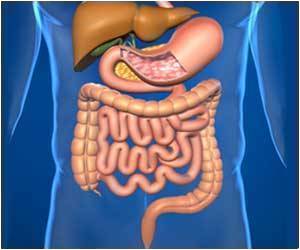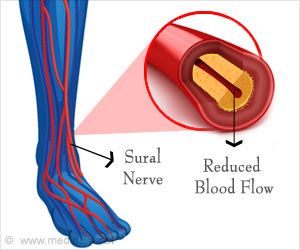“It’s important for us to understand niches and how lymphatics communicate with stem cells as part of the niche,” said Ophir Klein, MD, Ph.D., senior author of the study and executive director of Cedars-Sinai Guerin Children’s. “Deciphering the mechanisms that explain how the ecosystem that supports stem cells works will help to lay the foundation for future discoveries that could one day lead to therapeutic strategies to repair damaged tissue.”
Lymphatic System
The intestine undergoes continuous renewal to withstand the wear and tear that result from the breakdown of foods, and from the presence of waste that can injure and kill cells. The intestine needs to replenish itself constantly with healthy cells, and fortunately, it has an exceptional capacity to regenerate cells.
Advertisement
The division of intestinal stem cells to make more cells is regulated by their surrounding niche, which is comprised of several cell types and is an essential source of signals. However, it is unclear which niche cells produce signals during different states of injury.
To better understand stem cell activity, the team wanted to learn which cells help the intestinal epithelial cells repair themselvesparticularly lymphatic endothelial cells.
“Lymphatics are in very close proximity to the stem cells, and almost all the stem cell compartments are near lymphatics,” said Brisa Palikuqi, Ph.D., co-first author of the study and a postdoctoral fellow in the Klein Laboratory at UCSF. “Because the two cell types are in such proximity, this made us believe that these lymphatics may play an important role.”
Lymphatics express several factors, including a gene, Rspo3, that is known to be important for stem cells to function. To determine whether the gene played an important role in intestinal stem cell regulation, the investigators deleted the gene in mice and then used single-cell sequencing to see how stem cells in the intestine would react without Rspo3.
Initially, the stem cells did not have any response to the change in the environment. The researchers then decided to injure the system by delivering a chemotherapy drug that kills any proliferating cells wherever the drug travels through the body.
“When we did this, all of a sudden the stem cells and the intestine had to proliferate a lot more and replace a lot more cells daily,” said Jeremie Rispal, Ph.D., also a postdoctoral researcher in the Klein Laboratory at UCSF and the other co-first author of the study.
The loss of the Rspo3 gene led to a lower number of stem and progenitor cells, hindering recovery after the injury.
Klein noted that the study demonstrates how lymphatic endothelial cells play a much larger role than previously thought in stem cell regeneration and may play a role in disease, perhaps even influencing the promotion of cancer.
“We are just beginning to understand the functions of the lymphatic vasculature,” Klein said.
Klein previously directed the Institute for Human Genetics and served as chief of the Divisions of Medical Genetics and Craniofacial Anomalies at UCSF, where he remains an adjunct professor. Klein conducted the study at both USCF and Cedars-Sinai.
Source: Eurekalert



